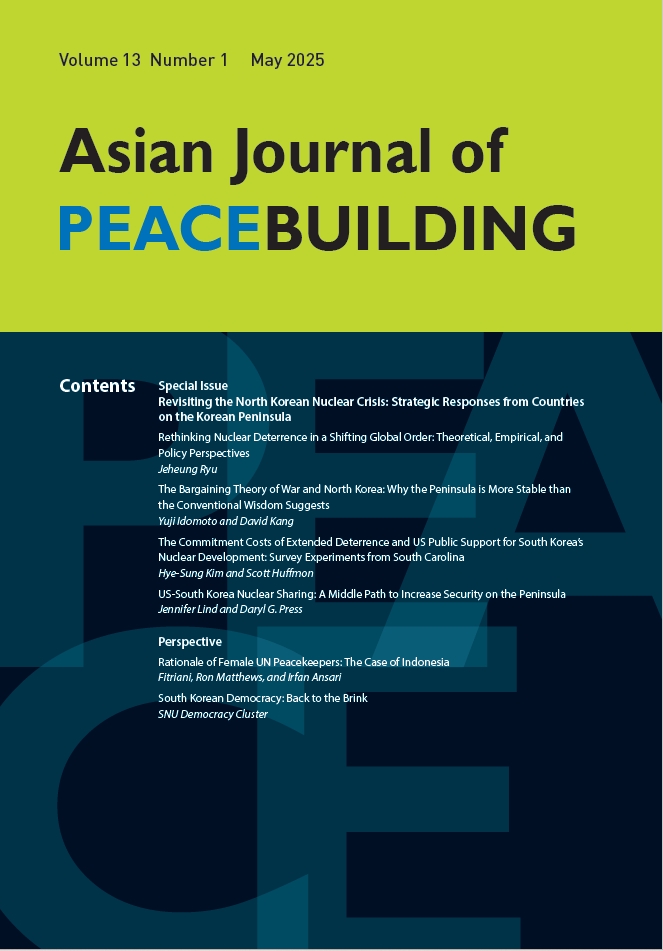This study examines the alliance dilemma in the US-South Korea relationship, characterized as a patron state fearing entrapment and a client state fearing abandonment. We argue that a patron’s support for allied nuclearization is determined by the costs of extended deterrence and the client’s independent nuclear capabilities. We predict that a patron favors gradually withdrawing extended deterrence if the costs are high and the client lacks an independent nuclear deterrent. Two survey experiments with South Carolina voters support this hypothesis. Study 1 found that higher extended deterrence costs increased support for South Korea’s nuclearization without affecting support for the US’ immediate withdrawal of extended deterrence, while Study 2 showed increased support when respondents were informed of direct US security threats.
Back Issues
Special Issue_Revisiting the North Korean Nuclear Crisis: Strategic Responses from Countries on the Korean Peninsula
The Commitment Costs of Extended Deterrence and US Public Support for South Korea’s Nuclear Development: Survey Experiments from South Carolina
Hye-Sung Kim and Scott Huffmon pp. 41-72 doi: 10.18588/202505.00a538
PDF Download

